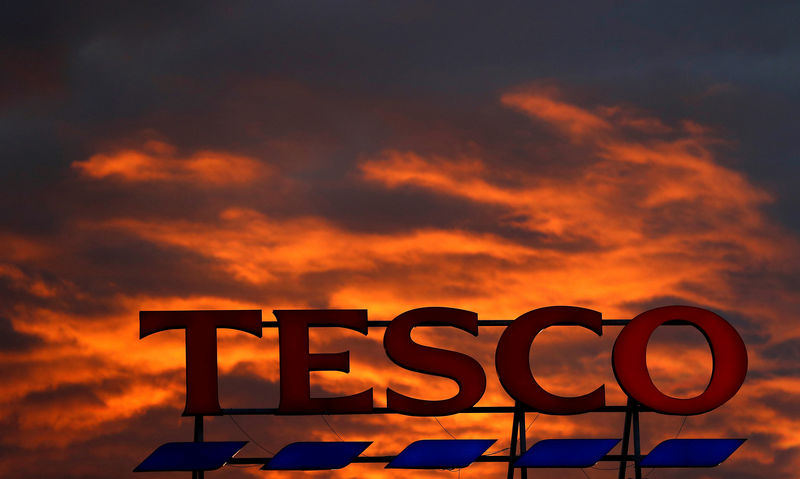This post was originally published on this site
https://i-invdn-com.akamaized.net/trkd-images/LYNXMPEFB80JD_L.jpg
By James Davey
LONDON (Reuters) – Shares in Tesco (L:) rose more than 5% on Monday after Britain’s biggest retailer said it might sell its Asian businesses, in Thailand and Malaysia, which analysts valued at up to $9 billion.
Tesco said on Sunday it had begun a review of its Asian operations after receiving approaches for the businesses.
It said the review was at an early stage and gave no details of the interest received in the businesses, which generate about 8% of the supermarket group’s total annual revenue and 10% of its profit.
Pulling out of Asia would mark a further retreat toward Tesco’s core domestic market and a shift in strategy as the group had identified Thailand, where it is the market leader, as a key growth area at its Capital Markets Day in June.
“Hence, to us, for any approach to be accepted by the Tesco board for Thailand then it needs to be highly attractive if not a knock-out price,” said Shore Capital analyst Clive Black.
Shares in Tesco were up 5.5% at 1122 GMT, valuing the retailer at 24 billion pounds ($31 billion), as analysts said rival retailers and private equity investors could be interested.
If Tesco does exit Asia the decision could be made by its new CEO, Ken Murphy, rather than incumbent Dave Lewis who is stepping down next year.
Analysts at Bernstein valued the Asian business at 6.5 billion pounds to 7.2 billion pounds ($8.3 billion to $9.2 billion).
Tesco trades from 1,967 stores in Thailand and 74 in Malaysia. In the six months to Aug. 24 the businesses generated sales of 2.56 billion pounds, up 1% at constant exchange rates from a year earlier, and operating profit of 171 million pounds, up 42.3%.
Bernstein analyst Bruno Monteyne said Tesco’s Thai operation was a “high quality business”, with 50% of its earnings coming from a mall-rental business and 50% from a food retail market that is much less competitive than the UK. He said the Thai business still had significant growth opportunities.
In 2016 France’s Casino sold its majority stake in Thai hypermarket operator Big C Supercenter, Tesco’s main competitor in Thailand, to TCC Group for 3.1 billion euros. Rival Carrefour (PA:) quit Thailand in 2010.
Monteyne noted the Big C deal was at 16 times enterprise value/earnings before interest, tax, depreciation and amortization (EBITDA), while Tesco itself trades at 6.8 times.
“That leaves the Thai business hugely undervalued as part of the group. That in itself provides ample justification to consider a disposal, especially if there is unsolicited interest,” he said.
GROWTH AVENUE
While selling Thailand could mean a material distribution to Tesco’s shareholders it would remove a growth avenue from the group, which said in June that it saw an opportunity for 750 new convenience stores in Thailand over the “medium term”.
Celebrating its 100th anniversary, Tesco is five years into a UK-focused recovery plan launched by Lewis after an accounting scandal capped a dramatic downturn in trading. In October Lewis declared Tesco’s turnaround complete and said he would step down next summer. Murphy, a former executive at healthcare group Walgreens Boots Alliance (O:), has not yet confirmed his start date.
In 2015 Tesco sold its South Korean arm to a group led by private equity firm MBK Partners for $6.1 billion. A year later it sold its Kipa business in Turkey to Migros, the country’s largest supermarket chain.
Under its previous management Tesco made costly exits from Japan, the United States and China, starting a retreat from its once lofty global ambitions.
If Tesco does quit Thailand and Malaysia, it will inevitably raise questions over the future of its remaining overseas operations – its central European division, consisting of stores in Czech Republic, Hungary, Poland and Slovakia.

